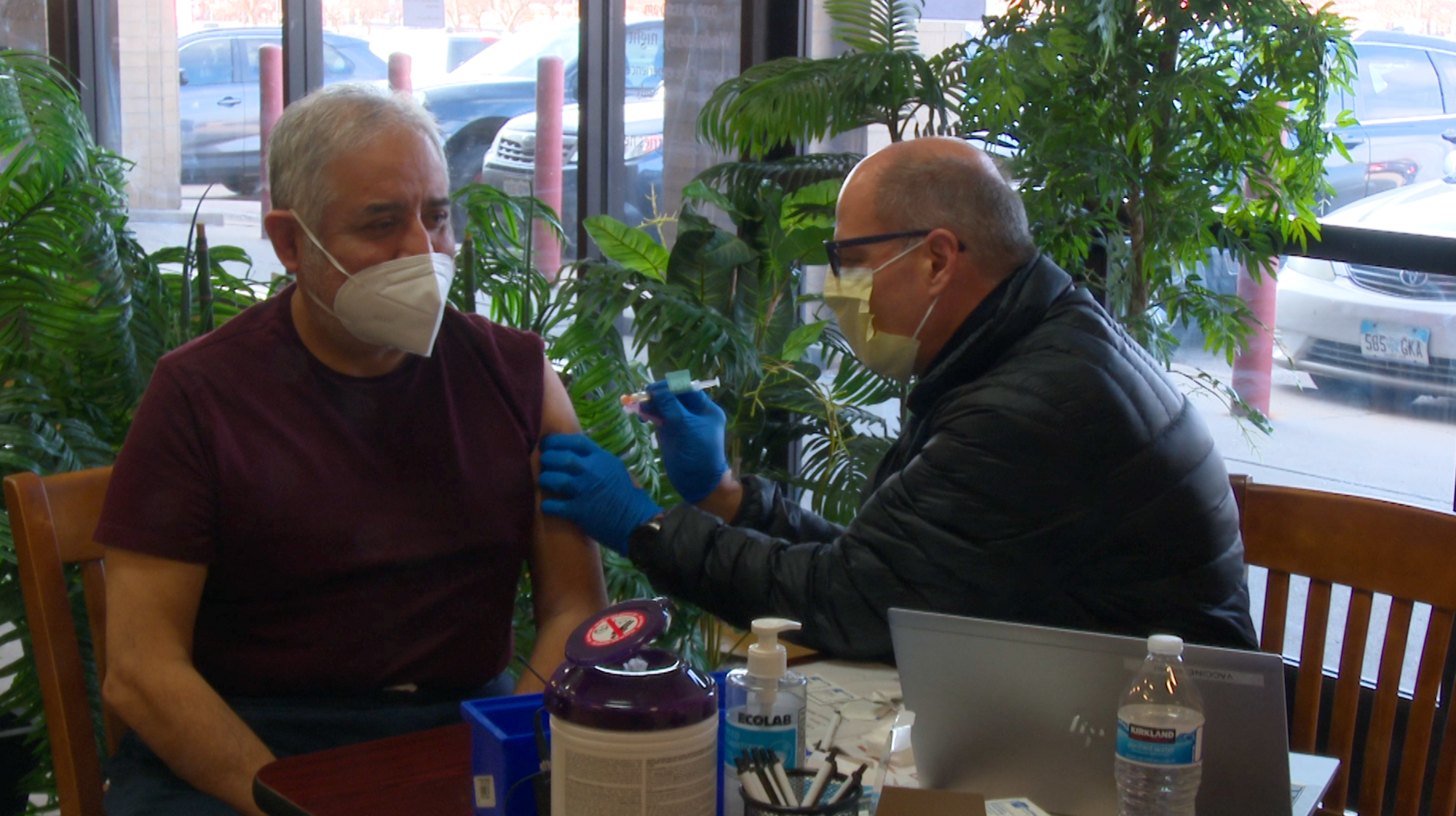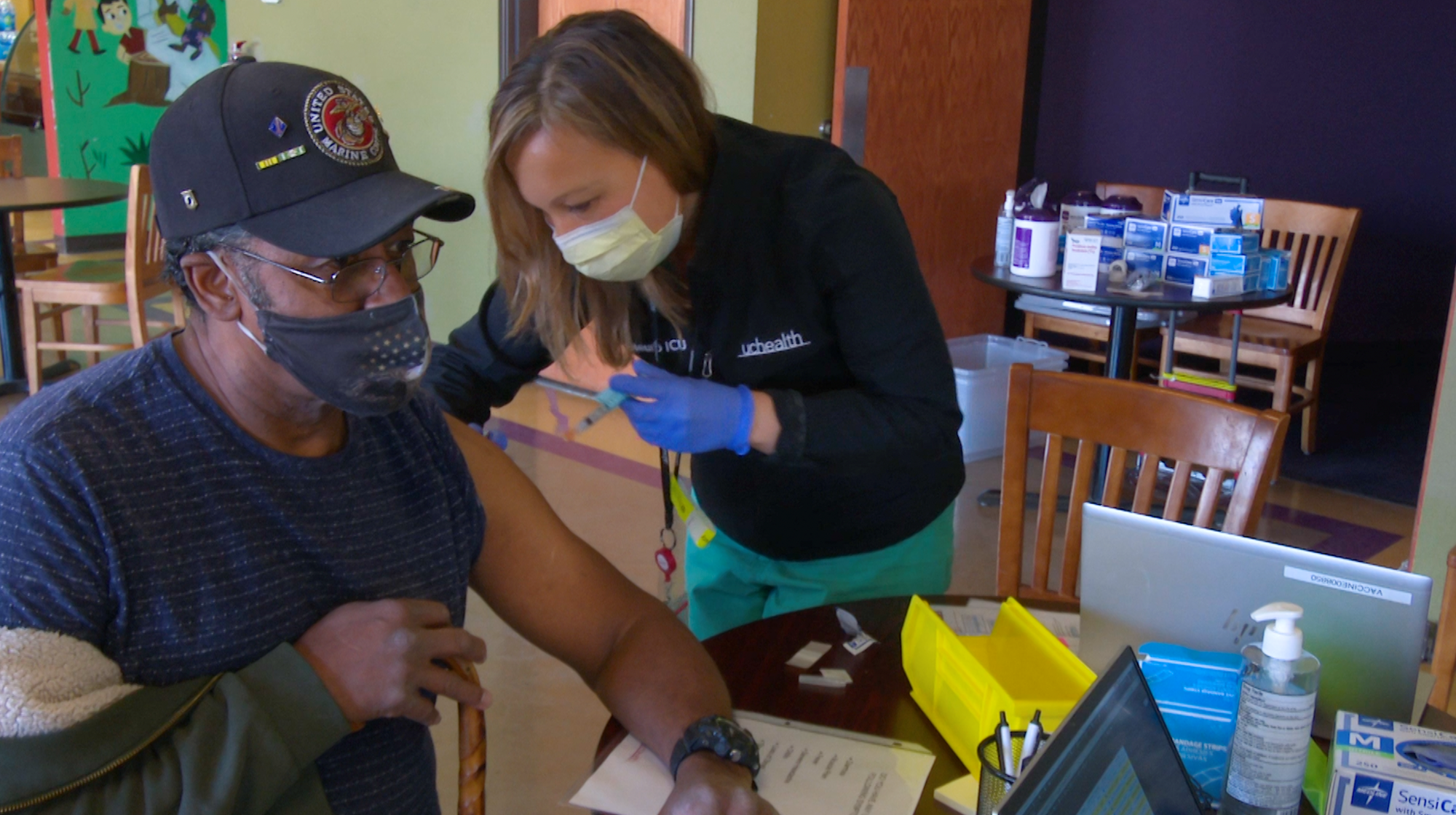An Aurora clinic brings COVID-19 vaccine to communities at heightened risk

AURORA — At a community COVID-19 vaccination clinic, Dr. Fernando Holguin offered a stark message for those unsure about whether to get their shots.
"I see patients in the intensive-care unit with COVID. I've seen many patients die," he said. "You do not want to ever ... have to live through that or take that risk."
Holguin is a UCHealth doctor, University of Colorado medical professor and Mexican immigrant. He was part of the medical team on hand Thursday, Feb. 11, at Restoration Christian Fellowship in Aurora to vaccinate members of the area's largely Black and Latinx community.
Those trying to protect the public from a pandemic that already has caused the deaths of about 5,800 Coloradans, and nearly half a million nationwide, acknowledge they face uncertainty and skepticism in the community about the vaccines.
According to a national survey released this week by The Associated Press and the NORC Center for Public Affairs Research, 13% of Americans said they already have been inoculated against COVID-19 and 54% said they definitely or probably will get their shots. But 13% of those surveyed said they definitely won't get vaccinated, and another 17% said they probably won't.
Of those who told the AP-NORC pollsters that they're uncertain about the vaccines, 60% are worried about possible side effects.
Another study from the Kaiser Family Foundation reports higher-than-average rates of vaccine hesitancy among Black and Hispanic adults, even though those communities are impacted by COVID at higher rates than the general population.
"Minority groups, like Hispanics and African Americans and others, are really shouldering the brunt of the disease," Holguin said. "Yet the rates of vaccinations are lower (than for) white populations. So I think it's critically important to get the word out."
Community clinics like the one at Restoration Christian Fellowship—organized through a collaboration with UCHealth and Salud Family Health Centers—aim to make vaccination more accessible to diverse groups.
"We have a lot of people who are under duress, who are really afraid, because they're thinking they may not have access to the vaccine," said Topazz McBride, pastor at Restoration Christian Fellowship.
Jerry Jaramillo, who was on hand to get his second shot of vaccine, said his main priority is to "stay healthy, for myself, my family, my friends. It's very important.

The pandemic's threat is "very concerning," Jaramillo said. "I wish that more people of color, I wish more Hispanics, were responding to this opportunity. And I understand it's going to take some trust to get the people to respond."
"I would tell my neighbors that there is nothing to worry about with this shot, because this shot is safe," said another vaccine recipient, Vernon Brown.

As of Feb. 11, about 840,000 total doses of either the Pfizer or Moderna versions of COVID-19 vaccine had been administered in Colorado, with 585,780 Coloradans receiving their first shot and 253,482 getting shot No. 2, the state Department of Public Health & Environment reports.
Holguin does warn patients about the potential for a sore arm, headache, chills and malaise from the shots.
But, he added, "No matter what kind of side effects you may get from the vaccine, it can never be worse than having the disease and being hospitalized. So protect yourself and don't run any risks."
FIND OUT MORE:
> Click here for COVID-19 vaccine information, including how to get your shots.
